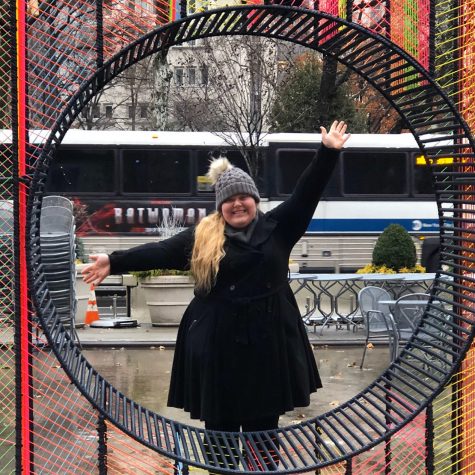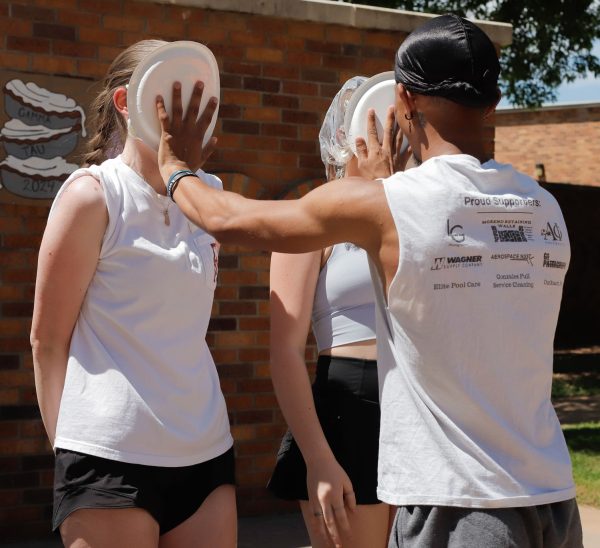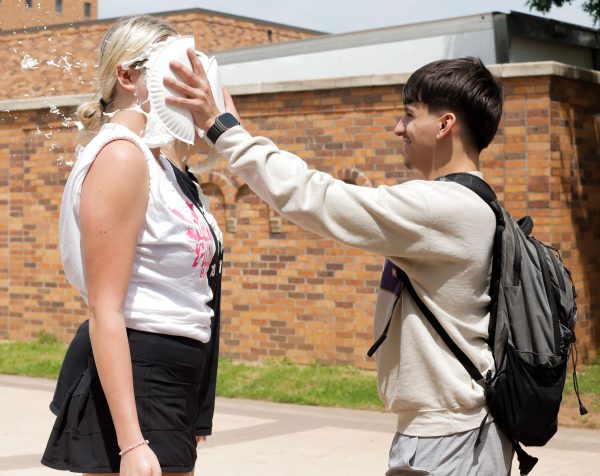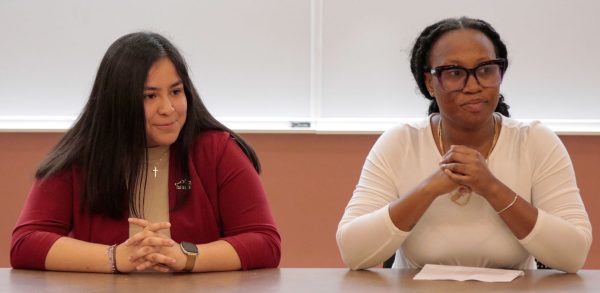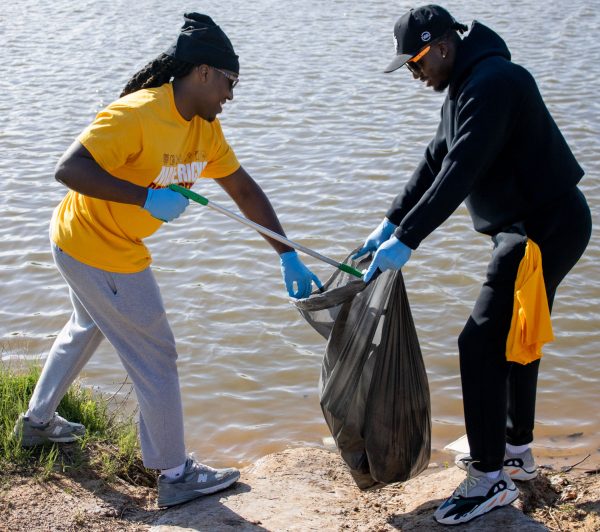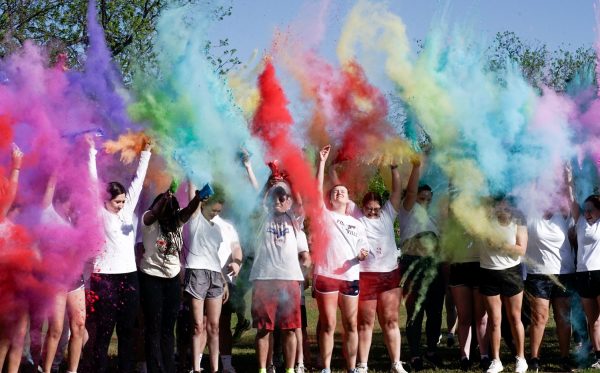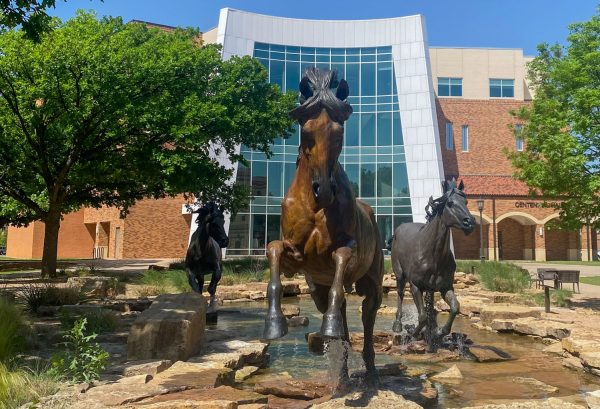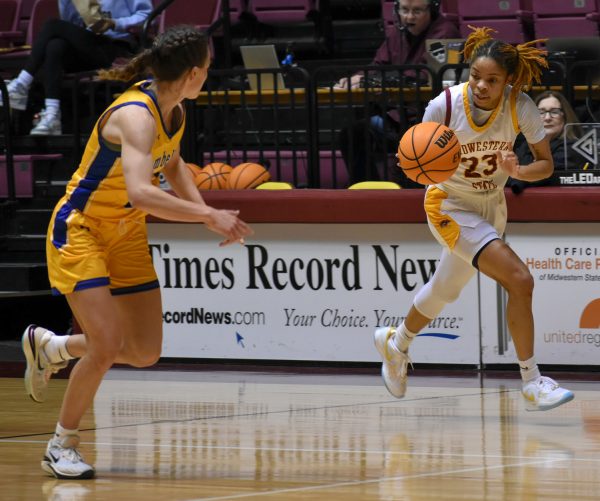New student center, Greek life building announced at town hall meeting
February 13, 2018
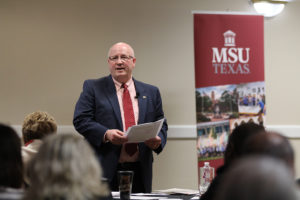
To alleviate some of the crowding in the Clark Student Center, Suzanne Shipley, university president, announced the Daniel building will be repurposed as a greek commons for sorority and fraternities as well as other student organizations as part of the boundless opportunity campaign at the town hall meeting at 1:30 p.m. in the Comanche Suite on Feb. 13.
Daniel is a working building next to the student center, and it is in the “perfect spot to take some of the activities that are crowding the students in the center and replace them,” Shipley said.
The Daniel Hall was a place of residence before it was repurposed as a multipurpose building, so Shipley said the administration are looking to build a “shiny, new building” to work out of.
According to Shipley, she reached out to Mac Cannedy, J.S. Bridwell Foundation leader, for $4 million to refurbish the Daniel building for sorority and fraternity for a greek commons to be available for other student organizations to take some of the activity away from the student center.
As of now, Fain Hall – across from the Clark Student Center and next to Daniel – offers an area for all the sororities on campus, but the fraternities have to meet elsewhere. According to Sierra Martinez, Chi Omega sorority pledge class director and education freshman, Fain Hall is almost too small for all the people now.
Because she is in charge of getting the girls in her sorority to interact with one another, Martinez said the new commons will allow for a more comfortable environment so the girls don’t feel “lectured at, but talked to.”
“It would be neat to have places for the greek life to meet at on campus,” Martinez said. “To have us located on campus would be a way to get us more connected with the rest of campus. It will be a place for students to ask questions and see us out.”
The boundless opportunity campaign parallels the campus’ strategic campaign to show “we are reaching out to be good citizens in our community,” Shipley said. The meeting was able to reiterate the announcements from the Board of Regents meeting Thursday, Feb. 8, which included updates to Moffett and Bolin, and naming the McCoy College Science, Math and Engineering.
“This has been a really good process. A lot of work goes into these seven years, and the first year was spent in planning,” Shipley said. “About this time last year, Tony and I began asking people for money, and we spent most of our early summer with the football stadium. And our goal was to not ask anyone who had been an academic donor, that we were only going to ask people or businesses that gave to the athletic department. We chose to make this an academic campaign.”
The funds raised sit at $34.4 million as of now, and Shipley said her goal for the campaign sits at around $50 million. Since Shipley said she and Vidmar thought they would reach $25 million by the end of the year, the “extreme generosity” from donors has encouraged her.
“Usually we make the big asks early because that encourages a lot of enthusiasm, so Tony and I have already made the requests from donors for over $1 million, now we are in the $500,000 range next,” she said. “The next iteration of the campaign is not about dollar amounts, it’s about number of people involved. We will move away from big donors and foundations.”
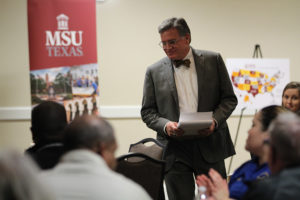
Along with the donations report, Shipley said the new agribusiness concentration offers students to get an education comparable to Tarleton State University. According to Shipley, Carol Dillard, long time donor and philanthropist, requested giving funds to create the agribusiness concentration within the economics major because she was disheartened that the people that work on her ranch go to Tarleton for education, so Robert Forrester, economics general business professor of finance, emphasized the benefit this will provide for students.
Last year alone, 44,000 jobs were posted in the agriculture business department, and the United States Department Agriculture reported in 2016, 21.4 million full-time and part-time jobs were related to the agricultural and food sectors—11.0 percent of total U.S. employment.
“We realized what an excellent chance and wonderful opportunity this will be for our campus,” Forrester said. “There are more farms and ranches in Texas than anywhere else, so we are in a good location for it. We started to wonder why it hadn’t been done earlier.”
Forrester said the financial goal for these projects each month have been met and superseded expectations, and he said these projects are invaluable to the campus because they “advance lives.”
According to Vidmar, each part of this campaign makes an impact on students as well as those outside of campus because the projects here “change lives outside of here.”
“Part of this campaign is to create a sustainable advancement program, and we are well on our way of becoming a first class, comprehensive campaign,” Vidmar said. “We have direct correspondence between our president and Board of Regents, and we are lucky to have that kind of dedication.”



